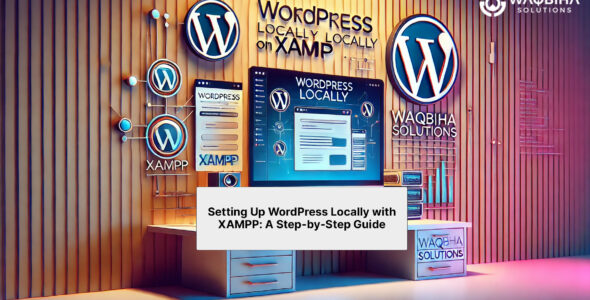Understanding WordPress plugin development will help you decide whether to hire a professional for your website. If you want to feel comfortable discussing your needs with a developer, we are here to walk you through the basics.
What are WordPress plugins?
A WordPress plugin is a piece of software that lets you add extra features to your site. Plugins are like apps for your website; they can do anything from making it safer to adding a shopping cart for your online store. With WordPress plugins, you can change how your site looks and works without changing the code.
Why consider WordPress plugin development?
When you’re looking to hire a professional for WordPress plugin development, here are some benefits you might want to keep in mind:
- Customization: Tailor your website to meet specific needs that existing plugins can’t fulfil.
- Unique Features: Add functionalities that make your site stand out.
- Optimization: Ensure your site runs smoothly and efficiently with features built specifically for your setup.
- Scalability: As your business grows, custom plugins can grow with you, adding new features and capabilities as needed.
The Basics of WordPress Plugin Development
Setting Up the Development Environment
A professional developer will set up a local development environment. This is a safe space where they can build and test your plugin without affecting your live site. Here’s how they do it:
- Local Server Installation: Tools like XAMPP, MAMP, or Local by Flywheel are used to create a local server on their computer.
- Local WordPress Installation: They download WordPress and set it up on this local server.
- Choosing a Code Editor: Tools like Visual Studio Code, Sublime Text, or Atom help them write clean, efficient code.
Understanding PHP and WordPress
WordPress plugins are created using PHP, a programming language. A good developer will be well-versed in PHP and familiar with WordPress coding standards and functions, ensuring that the plugin integrates seamlessly with your site.
Creating a Plugin
Here’s a simplified breakdown of the process a developer will follow:
- Plugin Structure: They’ll create a folder for your plugin within the
wp-content/pluginsdirectory of your WordPress installation. - Plugin Header: This is a bit of code at the top of the main plugin file that tells WordPress about the plugin (its name, version, author, etc.).
- Writing Functions: The developer will write functions to add the desired features to your site. For example, if you want a custom message in your footer, they would write a function to insert it.
Using Hooks and Filters
Hooks and filters are tools that allow a plugin to interact with WordPress and change how it behaves. Here’s what you need to know:
- Actions allow the plugin to add or change features at specific points in your site’s operation.
- Filters enable the plugin to modify data before WordPress displays or uses it.
Testing the Plugin
Testing is a critical step. Your developer will test the plugin thoroughly in their local environment to ensure it works as expected and doesn’t introduce any issues.
Best Practices
A professional will follow best practices to ensure your plugin is secure, efficient, and well-documented:
- Security: They will check and clean the data to avoid security holes.
- Performance: Optimized code ensures your site remains fast and responsive.
- Documentation: Clear comments and documentation help you (or another developer) understand how the plugin works.
Conclusion
It’s better to hire a professional if you know a bit about how WordPress plugins are made. Professional developers can make a custom plugin that fits your needs perfectly, whether you just need a small change or a complex feature. Keep in mind that improving your website’s performance requires a bit of education.

 My Account
My Account 



